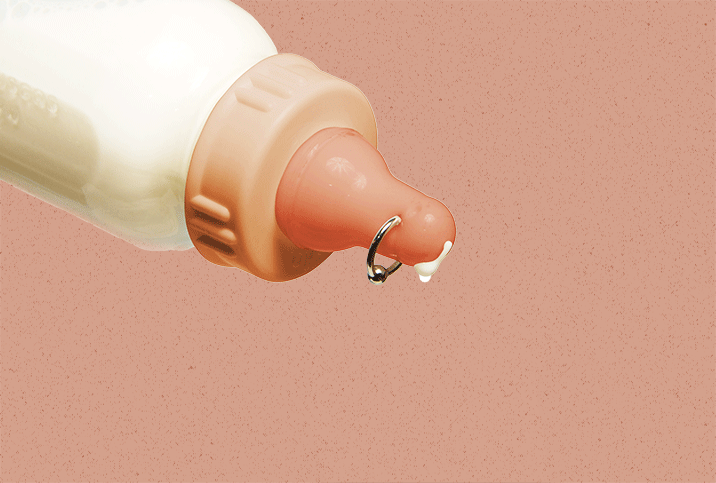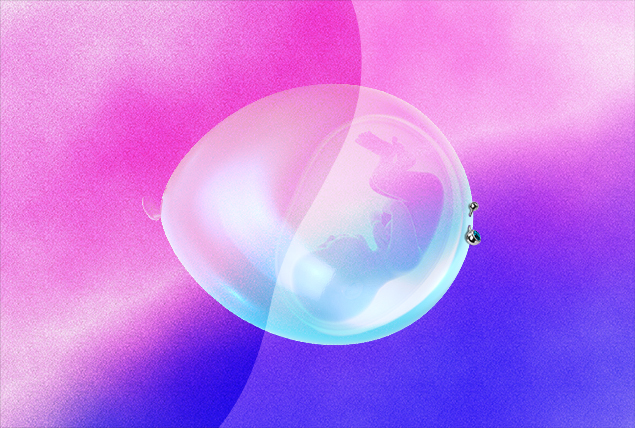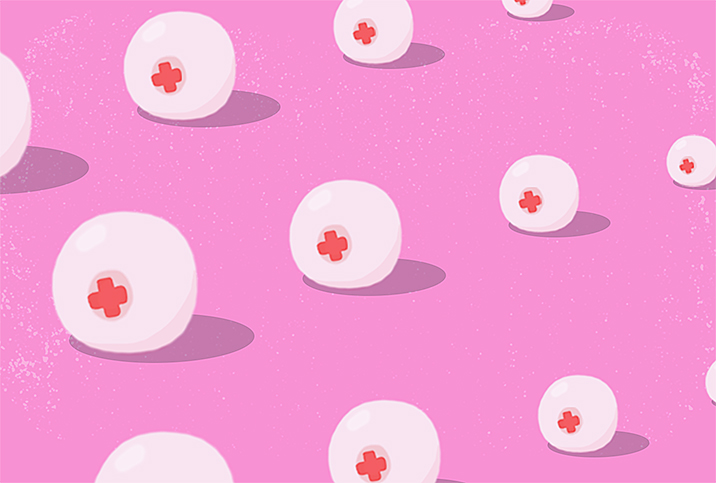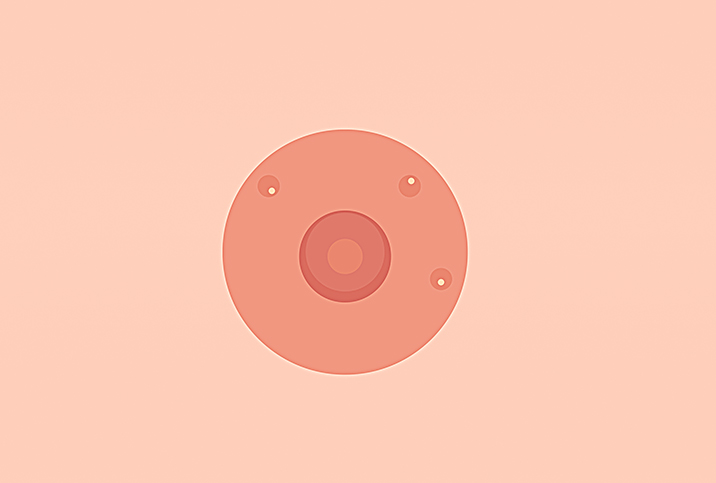Do Nipple Piercings Affect Your Breast Health?

Whether part of a social trend, a rite of passage, an act of rebellion, a personal catharsis or merely a cosmetic "looks cool," everyone's reasoning behind getting a nipple piercing is their own.
To get your nipples pierced, you literally get a needle shoved through your areolas, the accompanying milk ducts and nerve endings. Ouch! It certainly seems like an extreme choice, but will it have an extreme effect on your breast health?
Can nipple piercings get infected?
All piercings can become infected with bacteria from the outside world. If you've ever had your navel pierced, you're likely aware of how easily piercings inside your shirt can get irritated and infected. Nipple piercings are no exception. While rare, it is possible to contract and then spread hepatitis B or C, and even HIV if the piercing equipment used has not been properly sterilized.
Nipple piercings specifically put you at a higher risk of getting mastitis (an infection of the breast tissue likely caused by a clogged milk duct). Mastitis can happen in both nursing and non-nursing women (and in men, although it's significantly less common). Abscesses are also possible, although rare.
A 2014 case published by the College of Family Physicians of Canada emphasized the need to be pierced by a qualified professional in a sanitary environment, and to maintain exceptional post-piercing hygiene: The woman documented swam in a natural body of water prior to infection, introducing plenty of bacteria.
Do nipple piercings increase breast cancer risk?
Scarring—sometimes referred to as keloids in the piercing community—can feel hard and could cause a woman to worry after a nipple piercing that she has a lump. While there is no evidence to suggest nipple piercings increase your risk of breast cancer, it's best to get it checked out if something doesn't feel right. While it's probably nothing serious, 1 in 8 women will be diagnosed with breast cancer in their lifetime, so it's always better to be proactive.
How do nipple piercings affect breastfeeding?
As previously mentioned, nipple piercings can cause mastitis whether you nurse or not, but considering mastitis is most common in women who breastfeed, this is likely the most serious complication you'll experience with a nipple piercing while trying to nurse your baby. There is also a link between nipple piercings and decreased lactation.
Keep in mind, you will need to remove your piercing when you breastfeed as it's a choking hazard and can make it difficult for the baby to latch on.
Can nipple piercings increase sensation?
Many women enjoy nipple stimulation during foreplay and sex. In fact, a 2011 study published in the Journal of Sexual Medicine indicated nipple stimulation corresponds to the genital sensory cortex in the brain. Some women say nipple piercings can enhance nipple stimulation, and therefore enhance sex.
Outside of enhancing pleasure during sex, nipple piercings have the potential to make women feel sexy and powerful in the bedroom (especially if this 2015 Bustle survey is any indicator).
Guidelines for safe nipple piercings
Always go to a piercing parlor that uses disposable needles for piercings and is certified by the Association of Professional Piercers. You should never assume someone is licensed—not every state requires it. Getting a piercing by someone unlicensed is extremely dangerous.
Before you select a piercer, ask your friends for recommendations, check social media for reviews and call piercing shops and ask questions such as:
- Are your piercers licensed and trained?
- Do you use hollow single-use needles?
- Is the nondisposable equipment (like piercing forceps) sanitized between uses?
- Do you use an autoclave (which sterilizes equipment)?
- What jewelry is used in a new piercing? (Hint: You're looking for implant-grade stainless steel or titanium.)
- Do your piercers use a piercing gun?
If they answer yes to the last question, pass on their services immediately. There's no way to thoroughly clean a piercing gun, and they are "loaded" with the jewelry, resulting in blunt-force trauma upon the action. This is never okay. Reputable piercers only use hollow single-use needles.
12 tips for avoiding infection
- Avoid touching your piercing outside of daily cleanings.
- Always wash your hands before touching your piercing.
- Cleanse your piercing daily by removing any crusting with warm water and then washing with unscented antibacterial soap. When cleaning and rinsing, move the piercing back and forth a few times to get to the entire surface area of the jewelry and piercing. Use clean paper towels and/or cotton swabs to completely dry the area: Regular towels can spread bacteria and catch and pull on the piercing.
- Avoid overwashing. Twice a day is usually the sweet spot.
- Do not use ointments of any kind. These will leave your piercings moist, and therefore welcome infection.
- Do not use Bactine, peroxide or alcohol to clean the piercing. These irritate the skin and delay healing.
- Do not swim in natural bodies of water, pools or hot tubs until your piercing is fully healed, which may take up to six months.
- Do not submerge the nipple/breast until fully healed, so stick to showers.
- Do not change the jewelry until your piercer says it's okay.
- Check periodically that the piercing is still in and not loose.
- Put on a shirt before applying cosmetics, hair spray, etc., as these will irritate the piercing.
- Maintain "healing behaviors," such as not smoking, not drinking, eating healthily, reducing stress and avoiding sun exposure.
Whether your goal is pleasure or cosmetic, it's important to understand the risks nipple piercings can pose to your health. And while it's not dangerous if you're careful, you should definitely do your research and follow good advice to ensure a simple piercing procedure today doesn't transform into a future health concern.


















